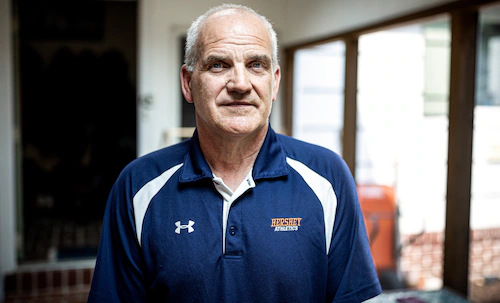
Fired Penn State football doctor who clashed with James Franklin lands new college football post

After a high-profile fallout at Penn State, the former team doctor who famously clashed with head football coach James Franklin has now secured a fresh opportunity in college football, marking a significant new chapter in his professional journey.
Dr. Scott Lynch, who was let go from his role as the head physician for the Penn State football program several years ago, has officially been hired by another NCAA institution, sources confirmed this week. His new position places him in charge of overseeing athletic health and medical services for a Division I football program — a role that underscores both his medical expertise and resilience following controversy.
The story first captured national attention when Lynch alleged that Coach Franklin attempted to interfere with medical decisions related to player health and return-to-play protocols. According to Lynch, Franklin pressured him and his staff to clear certain players to return to the field sooner than what was medically advised. These claims were strongly denied by Franklin and Penn State officials, who maintained that all decisions regarding player health were handled appropriately.
In 2019, Lynch filed a wrongful termination lawsuit, alleging that his dismissal was a direct result of refusing to compromise medical integrity in favor of football outcomes. The case drew considerable media scrutiny and raised broader questions about the balance between athletics and athlete welfare in high-stakes college programs. Although the legal dispute was eventually settled confidentially, Lynch’s professional future remained uncertain — until now.
The name of the new university has not yet been publicly disclosed, pending an official announcement, but early reports suggest that the program is located in the Southeastern United States and is currently rebuilding its sports medicine department. Lynch’s hiring is seen as a strategic move to bolster credibility, ensure high medical standards, and provide leadership rooted in strong ethical principles.
Those close to the hiring process have praised Lynch’s qualifications and experience, emphasizing his commitment to athlete safety.
“He’s one of the most respected sports physicians in collegiate athletics,” a source familiar with the new program said. “What happened at Penn State never diminished his integrity or ability. In fact, it made many in the industry see him as someone who prioritizes athletes over wins — and that’s exactly what we need.”
Lynch himself has not commented publicly on his new role, but his appointment is already being viewed as a redemptive moment. Medical colleagues and advocates for player welfare have applauded the move, calling it a strong message that standing up for ethical treatment in sports medicine does not mean the end of a career.
Meanwhile, Penn State and Coach Franklin continue to move forward with their football operations, and the university maintains that all protocols related to player health are handled with full compliance and professionalism.






